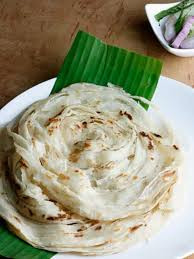Can Homemade Pickles Cause Infections? A Detailed Look at the Risks

IIE DIGITAL DESK :Homemade pickles, a beloved addition to many households, are often praised for their tangy flavors and the ability to enhance a variety of meals. Whether made with vegetables like mangoes, carrots, or cucumbers, or even fruits such as lemons, pickles offer a flavorful kick to dishes. However, while homemade pickles are considered a traditional and delicious treat, there are certain health risks involved that could potentially lead to infections if not made or stored properly.
The process of making homemade pickles usually involves preserving fruits or vegetables in a brine solution, often with vinegar, salt, and spices. The preservation method creates an environment where the food can remain edible for an extended period. However, improper preparation or storage conditions could create the perfect breeding ground for harmful bacteria, posing a risk of foodborne illnesses and infections.
One of the most common issues with homemade pickles is contamination during the preparation process. If the utensils, containers, or jars used are not adequately sanitized, harmful bacteria can easily make their way into the pickle mix. The high moisture content and low acidity of some pickles can make them susceptible to bacterial growth, such as Clostridium botulinum, which causes botulism. This rare but serious infection can occur when pickles are improperly fermented or stored in low-acid environments. While botulism is not common in home-preserved pickles, it is still a potential risk, especially if the pickles are not sealed properly or stored at an incorrect temperature.
Additionally, improper fermentation techniques can lead to the growth of other harmful bacteria, such as Salmonella and E. coli. These bacteria can cause stomach issues, including vomiting, diarrhea, and abdominal pain. When preparing homemade pickles, it is essential to follow proper hygiene practices and ensure that all ingredients, especially raw vegetables and fruits, are thoroughly washed to remove dirt and potential contaminants. This can significantly reduce the risk of bacterial contamination during the pickling process.
Storage practices also play a critical role in preventing infections. After making homemade pickles, they should be stored in clean, airtight containers and placed in a cool, dry, and dark place. If pickles are exposed to heat or humidity, the risk of spoilage increases, which could lead to the growth of harmful microorganisms. It's important to ensure that jars are tightly sealed to prevent exposure to air, which can lead to the growth of mold or yeast. When pickles are stored in the refrigerator, the cold temperature can help slow down the growth of bacteria, making the pickles safer to consume over time.
Another risk factor involves the use of non-food-grade containers or metal lids, which can react with the acid in the pickling solution and create an environment for harmful substances to develop. For safe storage, glass jars with non-reactive lids are often recommended. Plastic containers that are specifically designed for food storage can also be a good alternative.
To further reduce the risk of infection, it's essential to follow a trusted and well-tested recipe when making homemade pickles. Recipes that include the correct amounts of vinegar or salt create the right environment for pickling and inhibit the growth of harmful bacteria. Always ensure that the pickling solution has the proper acidity levels, as lower acidity can encourage bacterial growth.
Despite these risks, homemade pickles can be enjoyed safely by adhering to proper hygiene practices, using the correct ingredients, and ensuring proper storage. If homemade pickles show signs of spoilage, such as off smells, mold growth, or discoloration, it is best to discard them to avoid any potential health risks.
In conclusion, while homemade pickles are a delicious and traditional food item, they do carry certain health risks if not prepared, stored, or handled properly. By following good food safety practices, using non-reactive containers, and maintaining proper hygiene, the risks of infection and foodborne illnesses can be minimized, allowing you to enjoy the tangy goodness of homemade pickles without worry.
You might also like!













